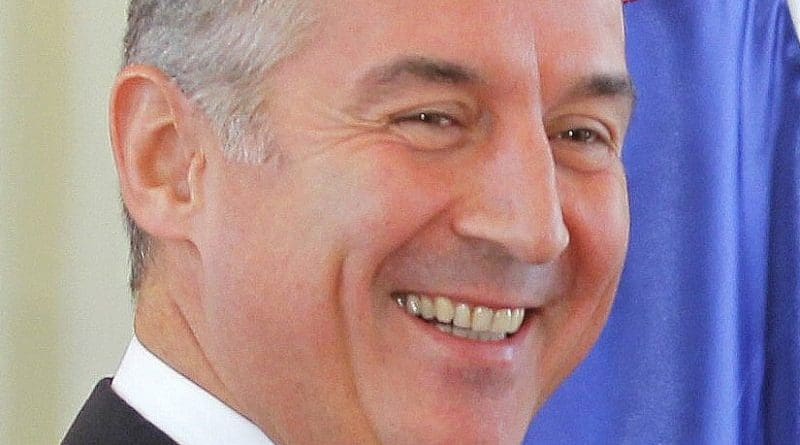Montenegro: PM Djukanovic Survives No-Confidence Vote
By Dusica Tomovic
The government of Milo Djukanovic has survived a no-confidence vote in parliament following a marathon three-day parliamentary debate.
A plot to unseat Milo Djukanovic as Prime Minister of Montenegro failed to gain enough votes in parliament on Wednesday night, after 42 of a total of 81 MPs voted against the motion of no-confidence – which Djakanovic himself had called.
The smallest opposition party, Positive Montenegro, which has been getting closer to Djukanovic’s Democratic Party of Socialists, DPS, voted in favour of the embattled PM and provided his government with enough votes to survive.
Last December, Positive voted in favour of several controversial government proposals, which led to accusations from the rest of the opposition that they were bidding for a place in a new government.
In exchange for their support, Djukanovic said he was ready to offer five seats in the cabinet to the opposition representatives.
He said he understood that there were important issues with the voters’ list and the misuse of the state resources during the elections, and was therefore ready to offer the opposition the interior, labour, agriculture and finance ministries, as well as the post of deputy prime minister.
In his address to parliament, Djukanovic compared Montenegro’s economic growth favourably to other countries in the region, saying that the country was doing much better than other former Yugoslav countries.
“Montenegro is a stable state in multi-ethnic harmony and we have shown that we are able to defend ourselves from self-destruction. Montenegro is not in crisis,” the Prime Minister said.
The vote on Wednesday ended the almost two-decade-old ruling alliance of Djukanovic’s Democratic Party of Socialists, DPS, and the Social Democrats, SDP, led by the speaker of parliament, Ranko Krivokapic.
The SDP voted against the government together with the opposition parties, following a heated debate in parliament on Monday between the ruling coalition partners, each of which charged the other with responsibility for the political crisis, with electoral fraud and with the break-up of their 18-year alliance.
The three-day session was marked by allegations about political corruption and vote buying and about who opposed Montenegro’s independence and had close relations with former Yugoslav president Slobodan Milosevic in the Nineties.
The two parties also accused each other of overseeing bad privatisations and the sale of much of the country’s coastline to Russians.
The sharpest words were exchanged between the two once close allies, Djukanovic and Krivokapic.
Djukanovic, who has held power since 1991, said the SDP’s decision to support the no-confidence motion brought an impossible situation to an end.
“It is clear that after this session there will be no more room for those who are accustomed to being in power and in opposition at the same time,” Djuknovic said, “more specifically, being in power for all the benefits that this status brings them and, in parallel, giving clumsily disguised support to those who undermine the government, not taking into account the detrimental effects on the national interests of Montenegro,” Djukanovic added, referring to Krivokapic’s party.
In the past two years, the SDP has increasingly criticized the government’s performance on reforming the judiciary and over the state of media freedom.
Djukanovic called on parliament to take a vote of confidence in his government on December 19, 2015.
The veteran Prime Minister, who has been either president or premier since 1991, has accused the opposition of trying to block the country from joining NATO, also saying that Russia stands behind the recent street protests.
As Wednesday’s parliamentary session got underway, several hundred opposition supporters, led by the strongest opposition alliance, the Democratic Front, rallied outside the parliament, chanting that the government was a “disgrace to Montenegro”.
The Front has been boycotting parliament for months and its MPs did not attend the parliament session. The right-wing alliance, composed mostly of pro-Serbian parties, has been staging protests in the capital, Podgorica, since last September, calling on Djukanovic to resign.
The current government, which was elected in December 2012, is composed of the DPS, the SDP, and three ethnic minority parties. An election is planned for autumn 2016 but the exact date has not yet been agreed.

